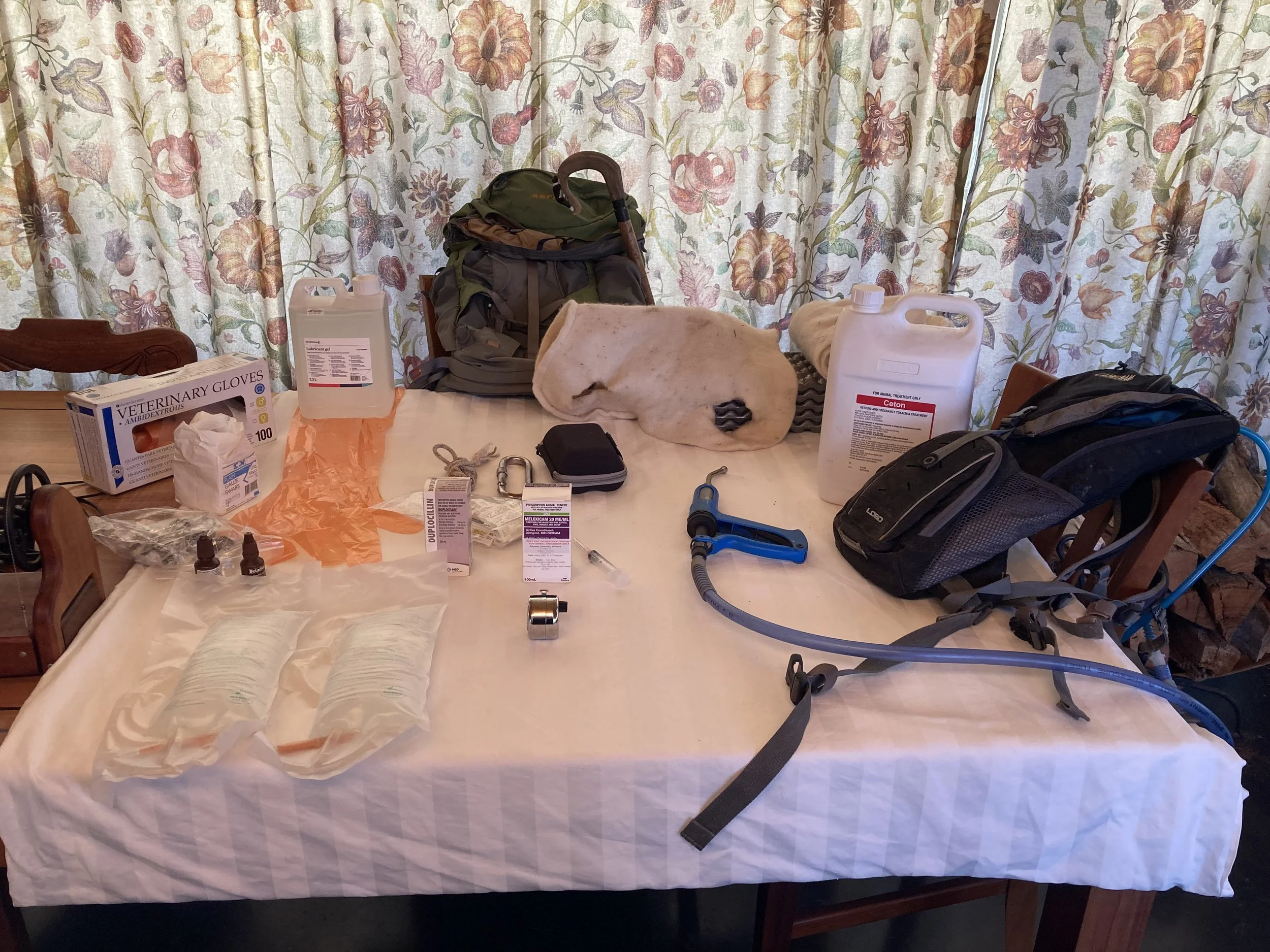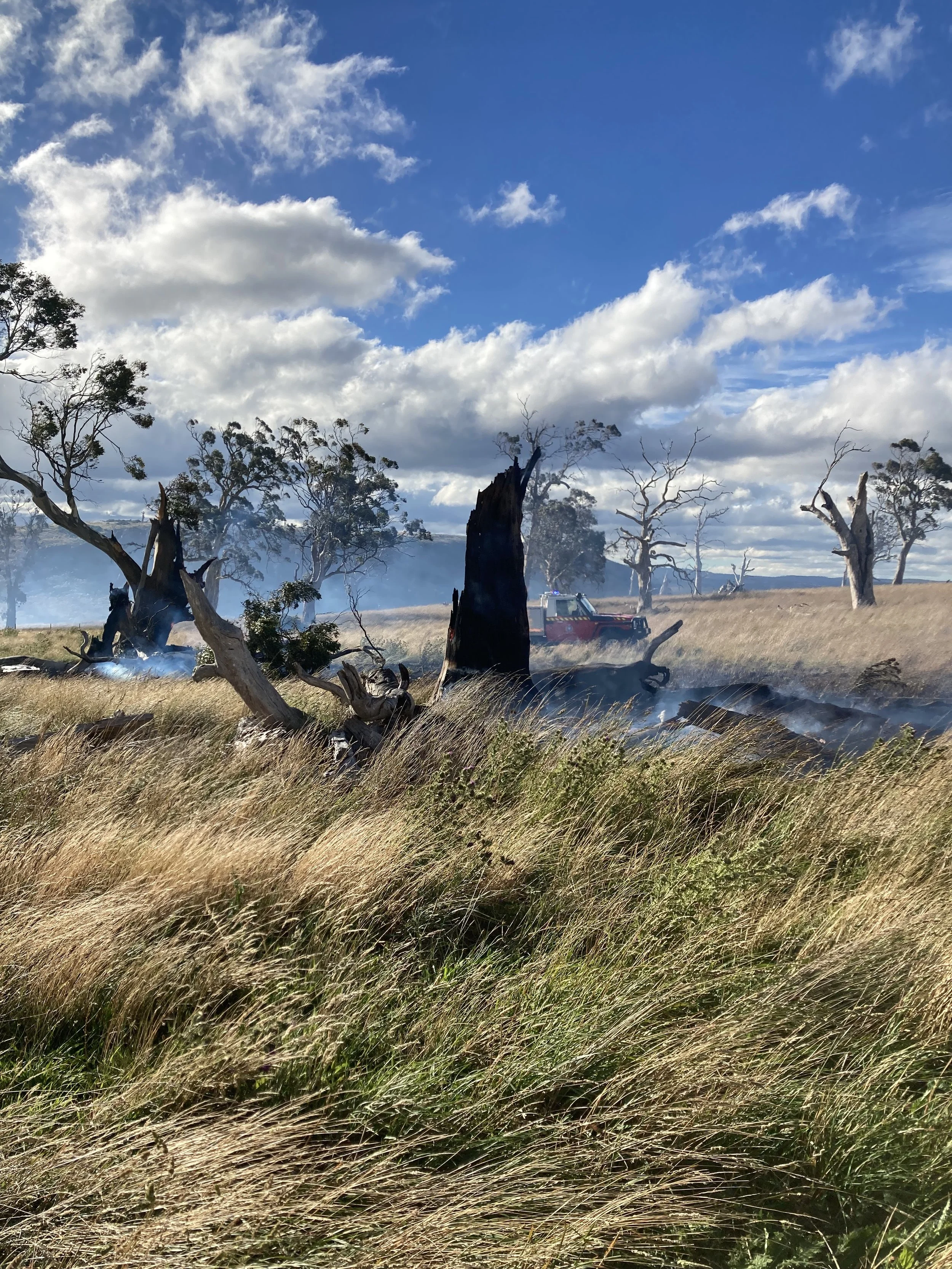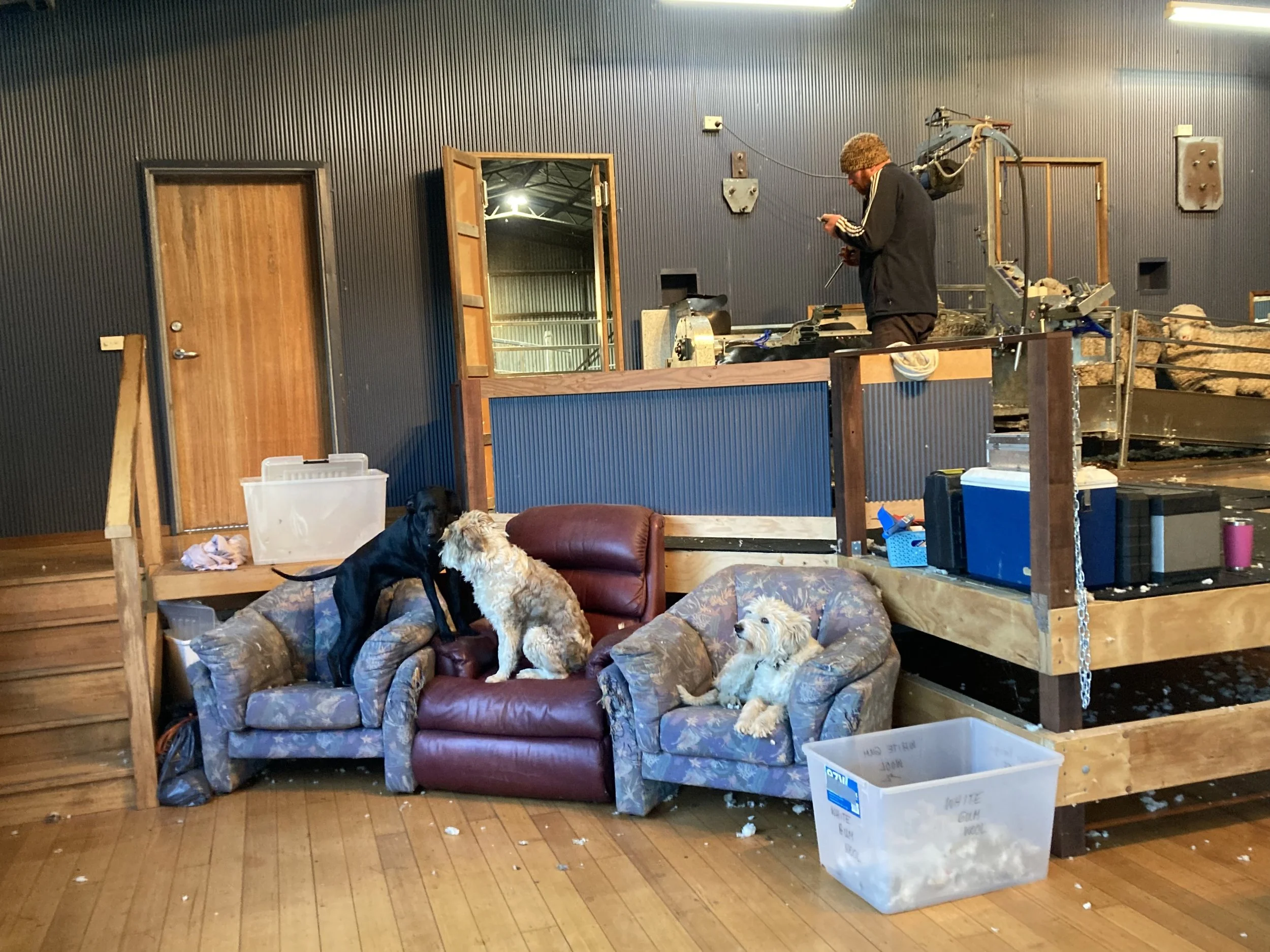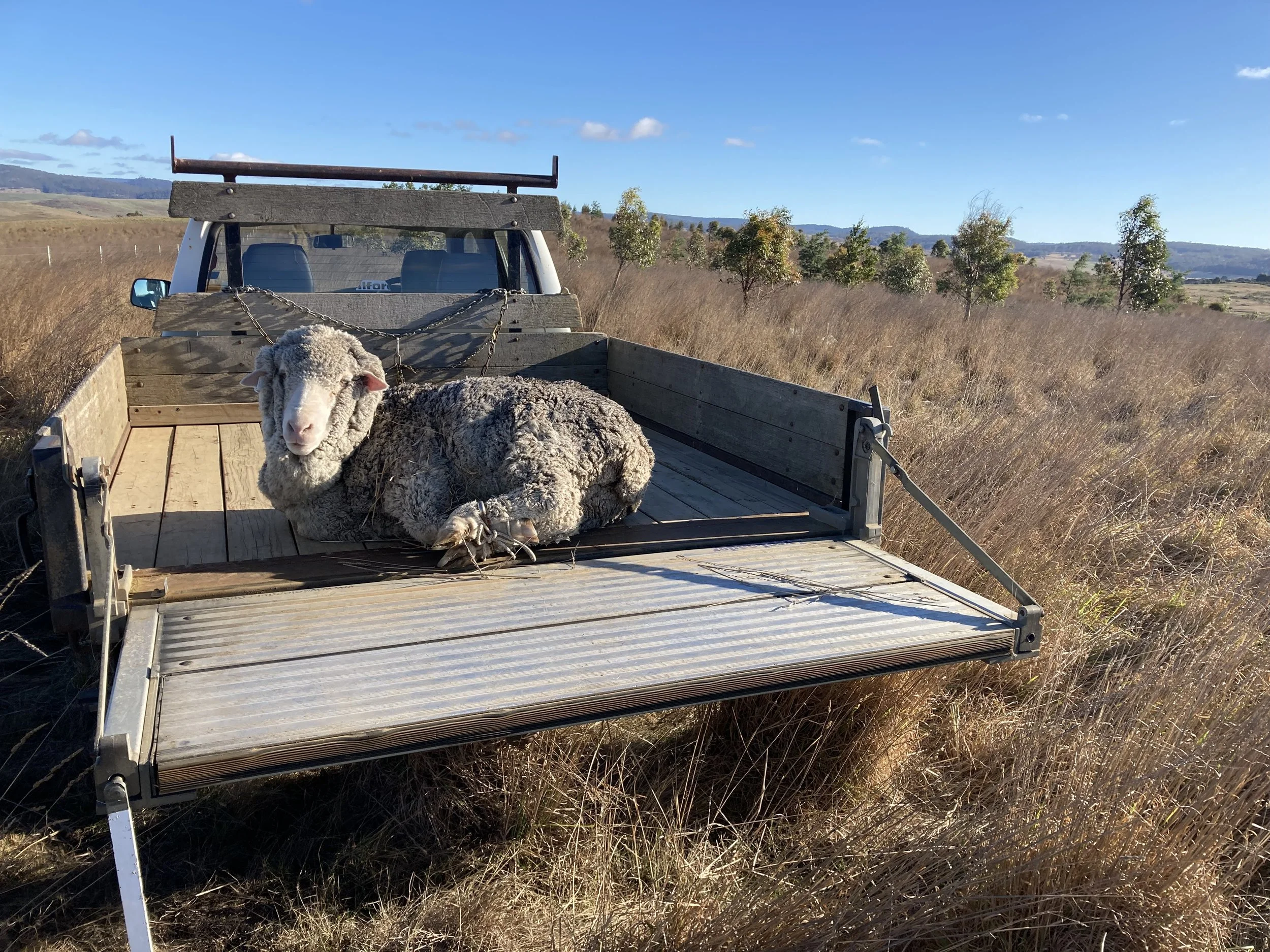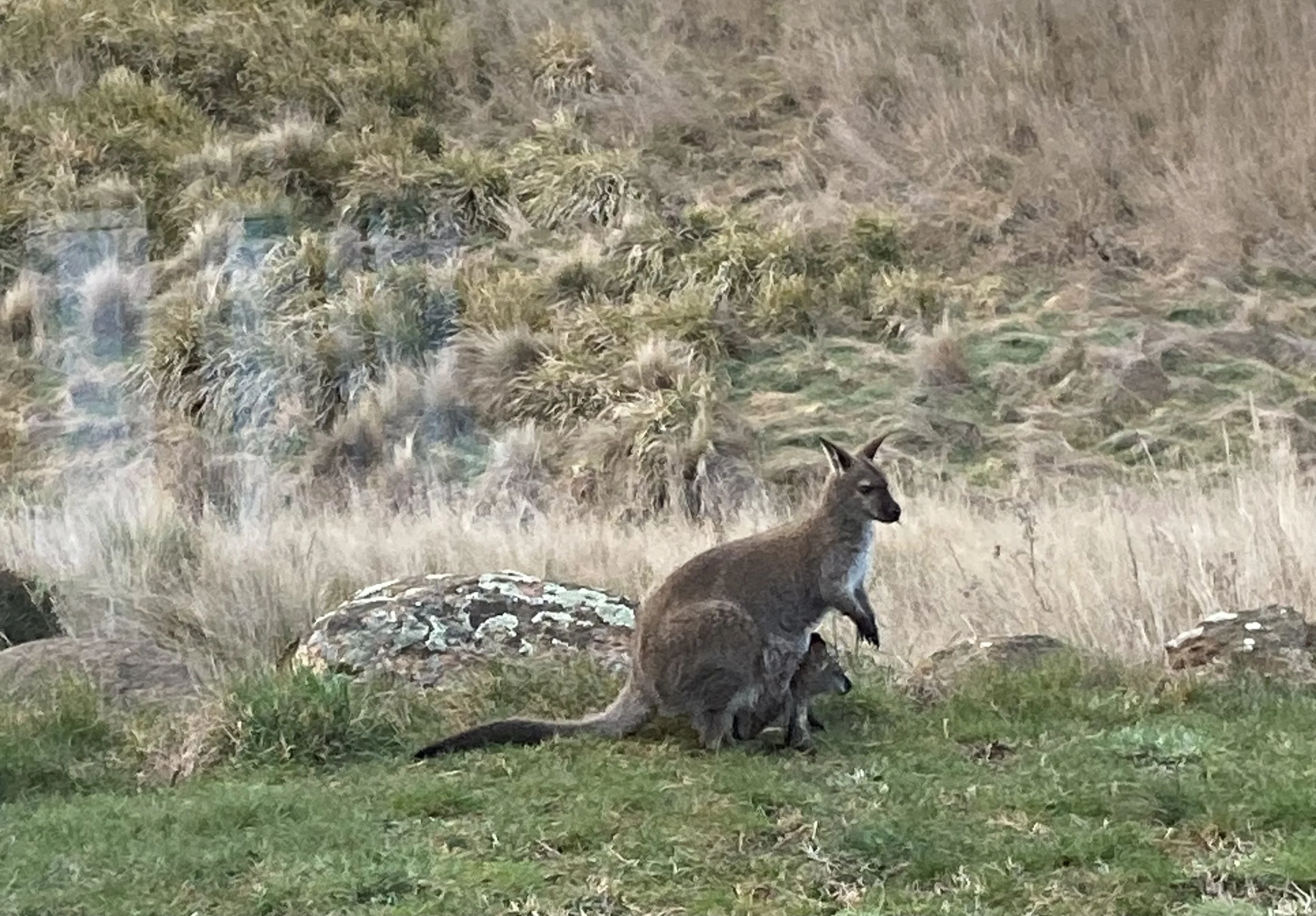Those of you who know me personally and through reading the Yarns will have a pretty good idea of the horrified fascination with which I watched the US election campaign—a bit like watching a forest fire raging out of control—and the dismay I felt at the result. Until yesterday, I hadn’t found the words I wanted to write, but after watching changes in flock behaviour after I re-united the “mothers-to-be” with the main flock, I was inspired to share the following perspective with you.
Separation Anxiety
In the past, October has been lambing month on my farm. Logically, it makes perfect sense: mid-spring (April equivalent for you in the northern hemisphere) with plenty of new growth for the mamas to make milk. However, year after year, September has seen reasonably settled weather and October has been truly awful.
Sheep Crocodiles
For those of you who don't speak British Commonwealth idiomatic English, a crocodile can also mean a line of school children. The relevance of this term to the real topic of this Yarn will become clear later. (If you are one of those who read the last chapter first, skip to the video at the very end of the Yarn.) The real topic of this yarn is "Do sheep work?" More specifically, do my sheep consciously choose to cooperate in the work of the farm?
Animal Wifery
We've had 3 ½ inches of rain in May (hooray!) and the property is looking better than it has in months. Admittedly, it looks better from a distance than at worm's-eye level, where there is too much bare ground showing. However, the lovely spring green look is most welcome, along with the beginnings of run-off.
Six Impossible Things
As often happens to me, I mis-remembered this quotation. I thought it was about doing six impossible things before breakfast, thereby revealing my lamentable tendency to jump into things with all four feet without due consideration of the consequences. Believing six impossible things is a lot harder, I think.
Bonus Track: How long is a piece of string?
This is a mini-skein of a Yarn, one I wrote alongside “Epiphany”. Although I wanted to include it somehow, it would have made Epiphany much too long. So you’re getting it as a bonus track. I didn’t take any photos of this episode—I was too busy trying to manage it. Instead I’m giving you photos of wildflowers blooming on the property at the moment, in defiance of extremely dry conditions.
Epiphany
Not the religious sort, more the “uh, duh” sort. Wikipedia describes this kind of epiphany as “an enlightening realisation that allows a problem or situation to be understood from a new and deeper perspective”. Sounds better than “uh, duh”, huh? It started a few months ago, though I didn’t recognise it for the turning point it has turned out to be.
You Don't Sing that Note, Either
Continuing my jazz and shepherding analogy (new subscribers click here for the previous Yarn), there’s a wonderfully apt line from “Birth of the Blues” (1941), set at the turn of the century. A ridiculously young Mary Martin is quizzing Rochester about how to sing the new jazz and blues. Rochester says, “Well, it’s like this. You listen for a note, and when you find it…you don’t play it. Instead, you listen some more, until you find another note…but you don’t play that note, either. Eventually, you find the right note to fit into the music.”
Shepherding and All That Jazz
As I continue my apprenticeship in shepherding, the subtleties of flock social dynamics are becoming more and more apparent. I’m on the cusp of shifting from the usual approach of “driving” the flock, with the dogs and me at the back, to “leading” the flock, with me at the front and the dogs where they need to be to hold or steer, but not pushing. Don’t get too excited about this cusp—I fully expect to teeter on the point of it for months, as the relationship of trust between me and the flock develops in fits and starts.
The Power of the Matriarch
Had I any idea of the pivotal role she would play in my life, I would have given my lead ewe a better name. Boadicea, for instance. Or maybe Elizabeth. Or even Frances Darlene after my difficult and undeniably contrary mother. But at the time I saved her from the usual fate of 5 year-olds on most sheep properties, I only knew that she was a pretty good leader, at least at times. So she became simply “Old Leader”.

